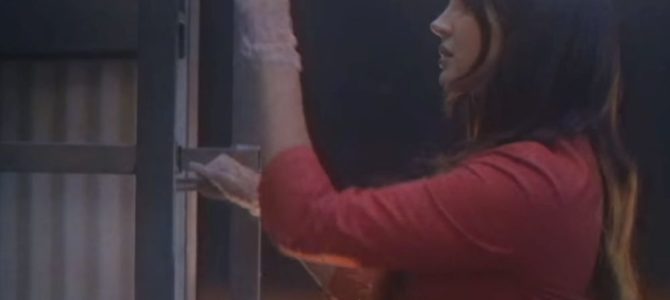
Criticizing Lana Del Rey is usually as senseless as complaining about Taco Bell. We all know she offers preprocessed, tasteless, and culturally amalgamated products, yet we enjoy her music anyways because she’s good at simulacra.
But when Del Rey tries to become a genuine social critic — as the pseudo-suicidal beauty queen has in promoting her new album — then we have a real problem. Over the past few months, Lana has positioned herself as a silvery remnant of the 1960s, releasing trippy lo-fi videos, casting a spell on Donald Trump, and even announcing an upcoming collaboration with real-life witch Stevie Nicks. In interviews she has said her goal with this album is to reach out to younger audiences so they can be “more socially aware.”
Her new music does have a veneer of social awareness. Fittingly, 2017 marks the fiftieth anniversary of the Summer of Love, when thousands of young people dissatisfied with the American political situation gathered in the Haight-Ashbury district of San Francisco and listened to artists and musicians tell them that cultural and religious traditions had failed them. Unmoored from society, sex and drugs became a lifeboat to salvation.
Right, Because Sex Is What Life Is All About
Lana’s message is similar. In her “Love” music video, we see a group of teenagers run away from home and find themselves on a desert planet with only an old car to keep them company. They kiss and float around in space while Lana encourages them to seize the world because they are “young and in love.”
Her second single, “Lust for Life,” makes the message more explicit. In the chorus, Lana exhorts her audiences to “take off all your clothes” because only carnal love will make life worth living. The rest of the song is chock-full of cultural references, from the song’s titular nod at Iggy Pop to an oddly placed couplet from William Ernest Henley’s poem “Invictus.” To her credit, had Lana written this song in the Summer of Love, it would have been pretty socially aware.
But however hard she seems to try, Lana can only be a simulation. She reveals that her newfound social-awareness is only a marketing ploy in her “Lust for Life” video, released on May 22. She and the Weeknd (who features on the song) dance on a computer generated “H” of the famous Hollywood sign and croon that catchy chorus repeatedly. But neither one takes off any clothes.
This is where things fall apart for Lana. If her new music were truly socially aware — as Lana says it is — she’d be more invested in her project. She’d take off all her clothes.
Of course, we can’t really expect Lana to live up to anything she says. If she did that, she’d be dead now. Or at least in rehab.
Lana’s Glammed Up Life Is a One-Way to Death
Here’s a quick recap of the lifestyles she portrays in her major albums so far. “Born To Die”: the story of an upstate New York Girl who read “Lolita” so much that she became a death-obsessed sex goddess. “Ultraviolence”: unsatisfied with her sex-goddess status, sad girl lets her boyfriend beat her up because it makes her feel better. “Honeymoon”: entirely bored with the men in her life, diva turns to drugs and develops a half-hearted taste for T.S. Eliot.
That’s a lot for one girl to handle. Thank God we know Lana’s entire career has been just an act, a semi-erotic show of poutiness designed for the enjoyment of sad girls and angsty boys everywhere. At the end of the day, when she’s wiped away her crocodile tears, Lana is just another entertainer. And whoever manages her publicity knows that threatening to strip naked gets more clicks and sells more concert tickets than actually stripping naked. Lana’s not a prophet, but she’s here to profit.
Because of the charming ridiculousness of her previous work, Lana can be forgiven for putting on a show of authenticity; it tends to make her music more interesting. The more pressing problem is that these new socially conscious songs and videos actually fail to be socially conscious — even as simulacra.
All the Bits of ‘Meaning’ Are Fake
Especially in “Lust for Life,” Lana’s references to incongruous bits of pop culture confuse and eventually diffuse the song of meaning beyond its obvious chorus. After all, only a master can tie Billy Joel, Iggy Pop, William Ernest Henley, The Angels, and Frank Sinatra into a coherent and meaningful song. So Lana plays it safe and filters them into an erotic call to action.
That might just work, if the summer of 1967 were only about dropping acid and demonstrating the Kamasutra in Haight-Ashbury. But it wasn’t. The year was also marked by the “Long Hot Summer of 1967,” a series of more than 159 race riots that tore the country apart. It was the summer the United States began losing the war in Vietnam. The center would not hold much longer.
In 1968, more race riots would raze already ravaged poor neighborhoods in Chicago and Los Angeles. Martin Luther King Jr. and Robert Kennedy would be assassinated. The following year would not bring much more hope. As the hippie movement removed itself completely from society and drifted around the country, hopeless and alone, those left behind would riot, oust their president, and proclaim the death of society. Nobody had been able to tell in the summer of 1967, but the Haight-Ashbury experiment churned up a deadening hangover: a whole subculture of frightened illiterates with no faith in anything.
When Lana celebrates the Summer of Love, she implicitly glorifies the decay that followed. She may not know it now, but her brand of social awareness is not a path to harmony for a polarized country. It’s an express lane to the apocalypse.









